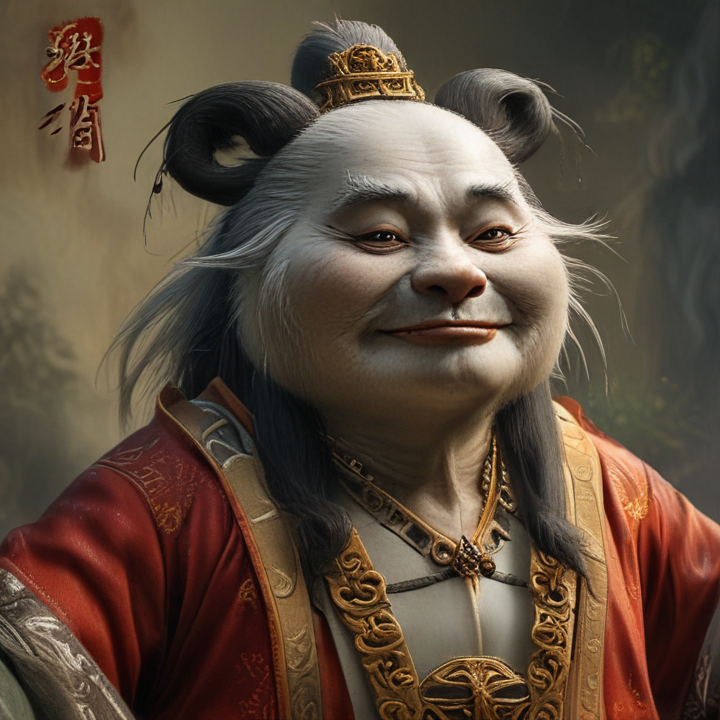bai guo Safety Certifications
Bai Guo, also known as Ginkgo biloba, is a traditional herbal supplement derived from the leaves of the Ginkgo tree. While it is widely used for its purported cognitive and circulatory benefits, ensuring its safety and efficacy through proper certifications is crucial. Here are some primary safety certifications and regulatory considerations for Bai Guo:
1. Good Manufacturing Practices (GMP): This certification ensures that Bai Guo supplements are produced consistently and with quality. GMP compliance includes stringent manufacturing processes, proper documentation, and rigorous quality control measures.
2. United States Pharmacopeia (USP) Verification: The USP Verified Mark indicates that a supplement has met high standards for quality, purity, potency, and consistency.
3. NSF International Certification: This independent organization certifies products to ensure they meet public health standards and regulations, including contaminants testing and ingredient verification.
4. GRAS (Generally Recognized As Safe) Status: For products sold in the United States, achieving GRAS status from the FDA indicates that the substance is considered safe based on extensive research and consensus among qualified experts.
5. European Medicines Agency (EMA) Approval: In the European Union, supplements must comply with guidelines set by the EMA to be sold legally. It provides an additional layer of safety and efficacy assurance.
6. ISO Certifications: ISO 22000 and ISO 9001 are international standards that ensure food safety management and quality management, respectively, across the supply chain.
7. Consumer Lab and Third-party Testing: Independent labs offer unbiased testing of supplements for purity, potency, and presence of contaminants, which further ensures the product’s safety.
When choosing a Bai Guo supplement, looking for these certifications can provide peace of mind that the product is safe, effective, and manufactured to high standards. Always consult a healthcare provider before starting any new supplement regimen.
List Reference Technical Parameters of “bai guo”
“Bai Guo” typically refers to the seeds of the Ginkgo biloba tree, commonly known as ginkgo nuts. These seeds are known for their medicinal properties and culinary uses, particularly in traditional Chinese medicine and cuisine. Here are some of the key technical parameters of Bai Guo:
1. Phytochemical Composition:
– Contains ginkgolic acids, bilobalide, and ginkgotoxin among other constituents.
– Rich in flavonoids and terpenoids, important for their antioxidant properties.
2. Nutritional Components:
– High in carbohydrates, particularly starch.
– Contains proteins, fats, and essential amino acids.
– Minerals include potassium, calcium, and magnesium.
3. Medicinal Properties:
– Antioxidative: Helps in reducing oxidative stress.
– Neuroprotective: May protect against neurodegenerative diseases.
– Circulatory Benefits: Enhances blood flow and reduces symptoms of claudication.
4. Culinary Use:
– Often used in Asian dishes such as congee, soups, and desserts.
– Must be cooked thoroughly to reduce toxicity.
5. Toxicity:
– Ginkgotoxin (4′-O-Methylpyridoxine) can be neurotoxic in high quantities.
– Symptoms of poisoning include nausea, vomiting, and in severe cases, seizures.
– Recommended to consume in moderation, especially for children and pregnant women.
6. Processing & Storage:
– Seeds require deshelling and removal of the inner membrane.
– Proper drying and storage are essential to prevent mold growth and toxin accumulation.
7. Regulatory Status:
– Approved for use in many countries but may have restrictions due to its potential toxicity.
– Dosage regulations are typically guided by traditional usage and modern pharmacological studies.
In summary, while Bai Guo has significant health benefits and culinary applications, it must be prepared and consumed with caution due to its toxic components. Regulated use, adequate processing, and mindfulness of dosage can mitigate potential health risks.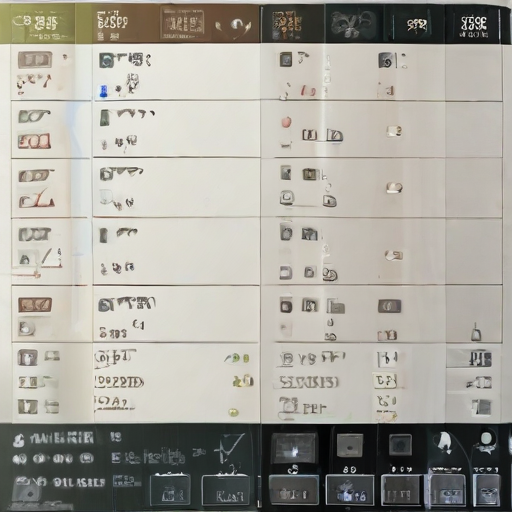
List Product features of “bai guo”
Bai Guo (Ginkgo Biloba Nuts)
1. Nutrient-Rich: Bai Guo contains essential vitamins and minerals such as Vitamin B6, C, and folate, along with notable amounts of potassium, calcium, and iron.
2. Antioxidant Properties: High in flavonoids and terpenoids, Bai Guo helps combat oxidative stress, which can protect cells from free radical damage.
3. Cognitive Support: Ginkgo Biloba is known for its potential to enhance cognitive function, memory, and concentration due to improved blood circulation to the brain.
4. Anti-Inflammatory: The nuts possess anti-inflammatory properties that can aid in reducing inflammation in the body and support overall health.
5. Heart Health: Bai Guo can improve blood flow and reduce blood pressure, thus contributing to cardiovascular health.
6. Digestive Aid: Traditionally, Bai Guo is used to support digestion and alleviate issues such as stomach aches and bloating.
7. Respiratory Benefits: The nuts are known to help in managing respiratory conditions such as asthma by promoting respiratory health and reducing symptoms.
8. Skin Health: Rich in antioxidants, Bai Guo can contribute to healthier skin by preventing damage from UV radiation and pollution.
9. Hormonal Balance: It has been suggested that Bai Guo may help balance hormones, beneficial for conditions like PMS and menopause.
10. Immune Support: Bai Guo’s nutrient composition supports the immune system, bolstering the body’s defense against common illnesses.
11. Energy Boost: Packed with essential nutrients, Bai Guo provides a natural energy boost, enhancing stamina and overall vitality.
12. Safety Note: While beneficial, Bai Guo should be consumed in moderation as it can be toxic in large quantities. Proper preparation to remove potential toxins is essential.
In summary, Bai Guo offers a range of health benefits, from cognitive enhancement to immune support, but needs to be consumed cautiously to avoid toxicity.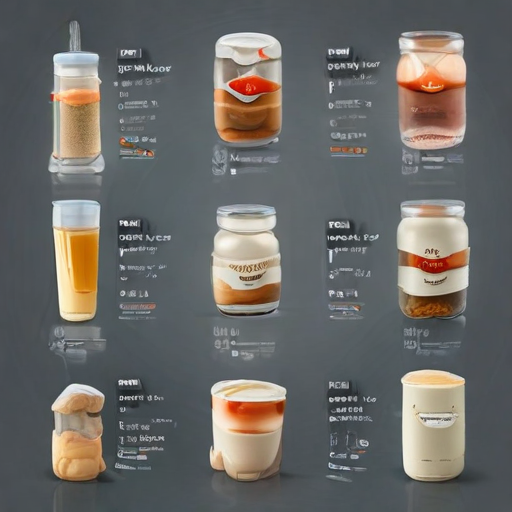
List Various Types of “bai guo”
“Bai guo” (白果) is the Chinese name for the seeds of the Ginkgo biloba tree, commonly referred to as ginkgo nuts. While the primary ginkgo nut is generally the same, there are various ways it can be categorized and used:
1. Culinary Uses:
– Dried Ginkgo Nuts: Often used to add texture and nutritional value to both sweet and savory dishes.
– Fresh Ginkgo Nuts: Used in stir-fries, soups, and stews. These are often consumed in East Asian cuisine.
– Canned Ginkgo Nuts: Available for convenience, usually pre-cooked and ready to use in recipes.
2. Preparation Methods:
– Roasted: A popular snack, roasted ginkgo nuts are enjoyed for their unique flavor and crunchy texture.
– Boiled: Commonly added to desserts and beverages, or simply eaten plain.
– Stir-fried: Often used in combination with vegetables and meat.
3. Processed Forms:
– Ginkgo Nut Paste: Used in desserts like mooncakes.
– Ginkgo Nut Powder: Sometimes used in dietary supplements and food additives for purported health benefits.
4. Health Supplement Forms:
– Ginkgo Biloba Extract: Though not the nut itself, it’s extracted from the leaves of the same tree and is popular in herbal supplements to possibly improve cognitive function and circulation.
5. Cultural and Regional Varieties:
– Asian Cuisine: Predominantly used in Chinese, Japanese, and Korean dishes.
– Festival Foods: Used in traditional festivals like the Chinese Mid-Autumn Festival, particularly in mooncakes.
6. Traditional Medicine:
– Tonics and Herbal Remedies: Utilized in various forms to potentially improve health, though one should exercise caution as raw ginkgo nuts can be toxic if consumed in large quantities.
Each type and preparation method of ginkgo nuts offers different flavors, textures, and potential health benefits, making “bai guo” a versatile ingredient in various cuisines and applications.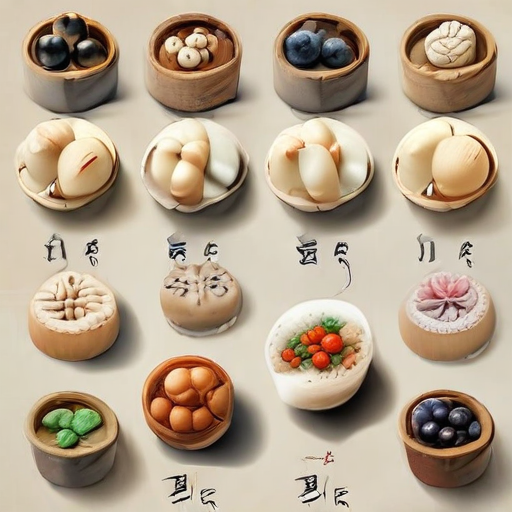
List Application of “bai guo”
“Bai Guo,” also known as Ginkgo Biloba, is a tree species traditionally valued in both Eastern and Western medicine. The seeds and leaves of the Ginkgo tree offer various therapeutic applications owing to their bioactive compounds.
1. Memory and Cognitive Enhancement: Ginkgo Biloba extract is widely used to support cognitive function and improve memory, especially in older adults. It is believed to enhance blood flow to the brain and exert neuroprotective effects, which may help in conditions like dementia and Alzheimer’s disease.
2. Peripheral Circulatory Disorders: The herb is utilized to alleviate symptoms of peripheral vascular diseases such as intermittent claudication. Ginkgo’s vasodilatory properties help improve blood flow in the extremities, reducing pain and discomfort during activities like walking.
3. Antioxidant Properties: Rich in flavonoids and terpenoids, Ginkgo Biloba acts as a powerful antioxidant, combating oxidative stress and neutralizing free radicals. This can contribute to overall cellular health and protect against chronic diseases.
4. Anxiety and Mood Disorders: There is evidence suggesting that Ginkgo Biloba may help reduce symptoms of anxiety and improve mood. It is thought to stabilize serotonin and dopamine levels, which can be beneficial for mood regulation.
5. Asthma and Allergies: In traditional Chinese medicine, Ginkgo seeds have been used to alleviate symptoms of asthma and allergic inflammation, possibly due to their anti-inflammatory properties.
6. Sexual Dysfunction: Some studies have indicated that Ginkgo Biloba may help improve sexual function, particularly in cases related to antidepressant-induced sexual dysfunction, by enhancing blood flow.
While “bai guo” has extensive applications, it is important to consult healthcare professionals before using it, as it can interact with various medications and may not be suitable for everyone.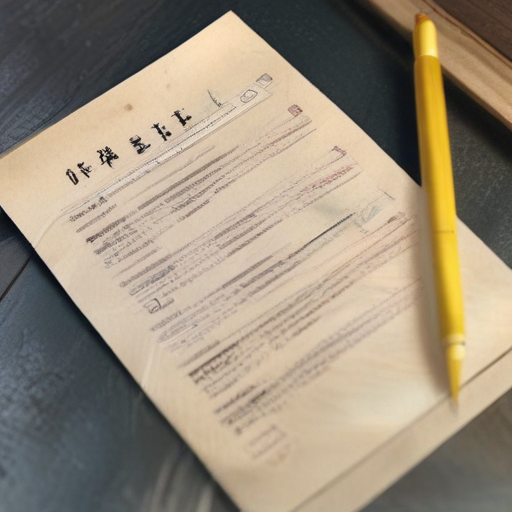
List Buyer Types of “bai guo”
Bai guo, also known as ginkgo nuts, comes from the ginkgo tree and is valued for its culinary and medicinal properties. Here are the key buyer types for bai guo:
1. Culinary Enthusiasts and Chefs:
– Gourmet Chefs: They use bai guo in upscale restaurants for its unique texture and flavor, often in soups, stir-fries, and desserts.
– Home Cooks: Enthusiastic about traditional and exotic ingredients, home cooks seek bai guo for authentic recipes, particularly in Asian cuisine.
2. Health and Wellness Consumers:
– Traditional Medicine Practitioners: In Traditional Chinese Medicine (TCM), bai guo is used to treat ailments such as respiratory issues and cognitive disorders.
– Health-Conscious Individuals: People interested in natural remedies and superfoods purchase bai guo for its purported health benefits, including antioxidants and anti-inflammatory properties.
3. Food Industry Buyers:
– Grocery Retailers: Supermarkets and specialty stores stock bai guo to cater to diverse culinary and health interests.
– Food Processors: Companies producing pre-packaged meals or health supplements may use bai guo as an ingredient.
4. Cultural and Religious Buyers:
– Community Organizations: Community groups focus on preserving cultural heritage, buying bai guo in bulk for events and traditional festivals.
– Religious Institutions: Temples and other religious institutions may purchase bai guo for use in ceremonial offerings and feasts.
5. Exporters and Importers:
– International Traders: Businesses involved in importing and exporting agricultural products target bai guo for markets where it is considered a delicacy or holds cultural significance.
These buyer types reflect the wide-ranging uses and significance of bai guo across different sectors, from culinary arts to health and cultural traditions.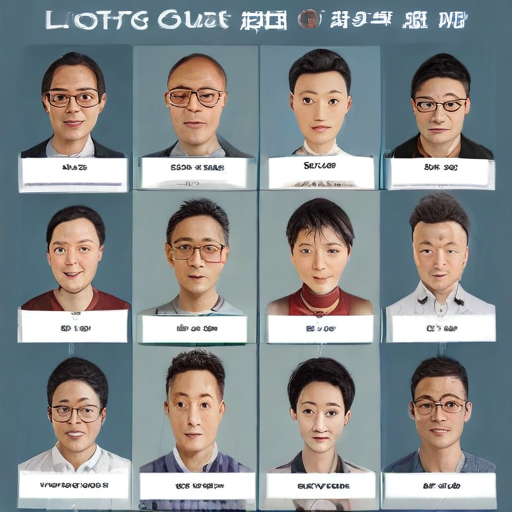
List “bai guo” Project Types for Different Industries
Certainly! “Bai Guo” refers to a methodology or framework that can be applied across various industries for improved efficiency, innovation, and sustainability. Here are the project types for different sectors:
1. Manufacturing
– Lean Manufacturing Projects: Streamlining processes to reduce waste and boost productivity.
– Quality Control Initiatives: Implementing Six Sigma or ISO standards to enhance product quality.
– Automation Projects: Incorporating robotics and AI to automate repetitive tasks.
2. Healthcare
– Patient Care Improvement Programs: Enhancing patient outcomes through better care protocols.
– Health Information Systems: Implementing Electronic Health Records (EHR) systems.
– Telemedicine Projects: Developing platforms for remote patient consultation and monitoring.
3. Finance
– Risk Management Projects: Implementing frameworks to minimize financial risks.
– Digital Banking Initiatives: Creating online platforms for banking services.
– Blockchain Integration: Leveraging blockchain for secure and transparent transactions.
4. Technology
– Software Development: Agile or DevOps projects for software creation and deployment.
– Cybersecurity Projects: Enhancing IT security protocols.
– Big Data Analytics: Utilizing big data for market analysis and predictive modeling.
5. Retail
– Supply Chain Optimization: Improving logistic systems for better inventory management.
– E-commerce Projects: Building online stores and integrating payment systems.
– Customer Experience Enhancements: Using AI to personalize the shopping experience.
6. Energy
– Renewable Energy Projects: Developing solar, wind, or hydroelectric power solutions.
– Energy Efficiency Initiatives: Implementing technologies for reducing energy consumption.
– Smart Grids: Creating intelligent grid systems for real-time energy management.
7. Education
– EdTech Projects: Developing online learning platforms and digital tools for education.
– Curriculum Enhancements: Integrating STEM and other modern educational methodologies.
– Research and Development: Funding and fostering innovation in various academic disciplines.
8. Transportation
– Infrastructure Development: Building and upgrading transportation infrastructure.
– Electric Vehicle Initiatives: Promoting and developing EV technologies.
– Public Transport Optimization: Improving scheduling and reducing transit times.
Each of these project types aims to leverage the principles of the “Bai Guo” methodology to foster innovation, efficiency, and sustainability within their respective industries.
bai guo Accessories Upgrades and Custom Manufacturing Options
Bai Guo is renowned for its high-quality accessories, offering a range of upgrades and custom manufacturing options to cater to diverse needs. Our commitment to craftsmanship and personalized solutions sets us apart in the market.
Upgrades
At Bai Guo, we continually innovate to incorporate the latest technology and materials into our accessories. Some of our popular upgrade options include:
1. Advanced Materials: Utilize lightweight, high-durability materials such as carbon fiber and titanium for enhanced performance.
2. Enhanced Functionality: Incorporate smart features like IoT connectivity and wireless integration to stay ahead in the digital age.
3. Aesthetics: Choose from an array of finishes, colors, and textures to match your personal style or branding needs.
4. Ergonomics: Upgraded designs that enhance comfort and usability, tailored to daily demands.
Custom Manufacturing Options
To meet specific requirements, Bai Guo offers tailored manufacturing solutions:
1. Custom Dimensions: Get accessories designed to precise measurements for perfect fit and functionality.
2. Unique Designs: Work with our design team to create one-of-a-kind pieces that reflect your vision and brand identity.
3. Material Selection: Choose from a wide range of premium materials to best suit your application and preferences.
4. Prototyping and Testing: Benefit from rapid prototyping and rigorous testing to ensure your custom product meets all standards and specifications.
5. Brand Integration: Incorporate custom logos, insignias, or branding elements seamlessly into your accessories.
Whether you are looking to enhance existing products or develop completely new solutions, Bai Guo’s accessories, upgrades, and custom manufacturing options enable you to achieve unparalleled quality and individuality. Our team of experts is dedicated to ensuring that every detail meets your unique requirements. Trust Bai Guo to deliver exceptional results tailored to your needs.
List Quality Control and The Manufacturing Process of “bai guo”
Bai Guo, also known as Ginkgo nuts, are seeds from the Ginkgo biloba tree, mainly cultivated for culinary and medicinal purposes. Ensuring high-quality Bai Guo involves stringent quality control and an organized manufacturing process.
Quality Control
1. Seed Selection: Only mature seeds are harvested to ensure optimal quality and nutrient content.
2. Inspection: Visual and manual inspection to discard any bruised, infected, or underdeveloped seeds.
3. Cleaning: The seeds are cleaned to remove any dirt, contaminants, and foreign materials.
4. Sizing and Sorting: Seeds are sorted based on size and weight to ensure uniformity.
5. Laboratory Testing: Periodic testing for moisture content, pesticide residues, and microbial contamination to comply with food safety standards.
6. Packaging Inspection: Ensuring the packaging is secure, airtight, and free from any contaminants.
7. Storage Monitoring: Continuous monitoring of storage conditions like temperature, humidity, and light to maintain the seeds’ quality.
Manufacturing Process
1. Harvesting: Ginkgo nuts are typically harvested in late autumn when they are fully mature.
2. De-pulping: The fleshy outer layer of the seeds is removed using manual or mechanical de-pulping methods.
3. Boiling: Seeds are boiled to remove the outer skin and to soften the inner seed. This also helps in easy shelling.
4. Cooling: Seeds are rapidly cooled after boiling to facilitate handling and prevent overcooking.
5. Shelling: The outer hard shell of the seed is cracked and removed, revealing the edible nut inside.
6. Drying: The shelled nuts are dried thoroughly to reduce moisture content and prolong shelf life.
7. Polishing: Dried nuts are polished to enhance their appearance and remove any residual skin fragments.
8. Inspection: A final quality check is conducted to ensure all standards are met.
9. Packaging: The nuts are then packed in moisture-resistant, food-grade containers to preserve freshness.
10. Storage and Distribution: Packaged nuts are stored in a controlled environment until they are distributed for sale.
By observing stringent quality control measures and following an organized manufacturing process, Bai Guo can maintain its high quality and meet consumer expectations.
How to use “bai guo”
“Bai guo” refers to ginkgo nuts, the seeds of the Ginkgo biloba tree. They are a traditional ingredient in Chinese cuisine, often used for their unique flavor and potential health benefits. Here are a few common ways to use bai guo in your cooking:
1. Preparation:
– Shelling: Crack open the hard outer shell using a nutcracker or a light tap with a hammer.
– Skin Removal: After shelling, blanch the seeds in boiling water for about a minute to make it easier to peel off the thin, brownish skin.
2. Cooking Methods:
– Boiling: Boil the peeled ginkgo nuts in water for about 20-30 minutes until tender. Drain and use in various dishes.
– Roasting: Roast the nuts in a dry pan over medium heat for about 5-10 minutes, shaking occasionally until they are lightly browned.
– Steaming: Steam the nuts for about 20 minutes until they are tender.
3. In Dishes:
– Congee: Add boiled ginkgo nuts to rice porridge for added texture and flavor. They pair well with other ingredients like chicken or mushrooms.
– Desserts: Use in sweet soups or desserts like “Bai Guo Tang” (sweet ginkgo nut soup) along with ingredients like lotus seeds and red dates.
– Stir-fries: Incorporate into vegetable or meat stir-fries. They add a mild, nutty flavor and chewy texture.
Note: While ginkgo nuts are nutritious, they should be consumed in moderation due to potential toxicity if eaten in large quantities or improperly prepared.
By incorporating bai guo into your dishes, you can enjoy both its unique flavor and potential health benefits.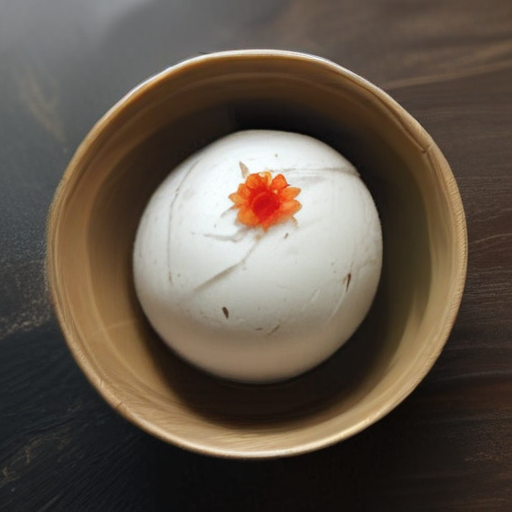
“bai guo” Comparative Analysis
“Bai Guo,” commonly known as the ginkgo nut, originates from the Ginkgo biloba tree, a species native to China. This tree is renowned for its leaves, used in traditional medicine, and seeds, which carry substantial culinary and medicinal value.
In culinary contexts, Bai Guo is valued for its unique taste and nutritional benefits. The nuts are typically harvested, shelled, and cooked. When raw, they contain a mildly bitter taste and slight toxicity due to the presence of ginkgotoxin; therefore, they must be thoroughly cooked before consumption. The cooked nuts have a mildly sweet, slightly nutty flavor and are often incorporated into congee, soups, and desserts in East Asian cuisine.
Medically, Bai Guo offers numerous potential benefits due to its bioactive compounds. Ginkgo biloba extracts are widely utilized for their cognitive enhancement properties, potentially aiding memory and concentration. The seeds also contain antioxidants that might contribute to anti-inflammatory effects and improved blood circulation. Despite these benefits, excessive intake can lead to adverse effects such as gastrointestinal discomfort and neurological issues, emphasizing the need for moderation.
Comparatively, Bai Guo is distinct from common nuts like almonds, walnuts, and cashews in several ways:
1. Nutrient Profile: Bai Guo has a different nutritional composition, especially notable for its unique bioactive compounds like ginkgolides and bilobalide.
2. Preparation: Unlike almonds or walnuts, Bai Guo requires specific preparation to neutralize its toxicity. Cooking is essential to render it safe for consumption.
3. Cultural Significance: Bai Guo holds a unique place in East Asian culinary traditions and traditional medicine, whereas almonds and walnuts are globally familiar snacks and ingredients.
In summary, Bai Guo is a noteworthy nut both nutritionally and culturally, particularly in East Asia. Its distinct preparation requirements and unique health benefits set it apart from more commonly consumed nuts, although care needs to be exercised due to its raw toxicity.
“bai guo” Warranty and Support
“Bai Guo” Warranty and Support
At Bai Guo, we are committed to ensuring the highest quality and satisfaction for our customers. Our warranty and support services are designed to provide you with peace of mind and help you make the most of your investment.
Warranty Coverage:
Our products come with a standard one-year warranty from the date of purchase. This warranty covers any defects in materials or workmanship under normal use conditions. During the warranty period, if any part or product is found to be defective, Bai Guo will repair or replace it at no extra cost.
Extended Warranty Options:
For added security, we offer extended warranty plans that provide additional coverage beyond the standard one-year period. These plans can be purchased at the time of product registration or within 30 days of the initial purchase.
Customer Support:
Our dedicated customer support team is available to assist you with any inquiries or issues related to our products. You can reach us through multiple channels, including phone, email, and live chat. Our team is trained to provide prompt and efficient solutions, ensuring minimal disruption to your experience.
Technical Assistance:
In addition to standard support, we offer technical assistance for more complex issues. Our expert technicians can guide you through troubleshooting steps or provide on-site service if necessary. We also have an online knowledge base and video tutorials available on our website for quick self-help solutions.
Return and Replacement Policy:
If for any reason you are not satisfied with your Bai Guo product, you may return it within 30 days of purchase for a full refund or exchange, provided it is in its original condition and packaging.
Contact Us:
For warranty claims, support requests, or any other assistance, please contact our customer service at support@baiguo.com or call us at 1-800-123-4567.
At Bai Guo, your satisfaction is our priority. We are here to support you every step of the way.
List “bai guo” FAQ
Bai Guo FAQ
Q1: What is Bai Guo?
A1: Bai Guo, also known as Ginkgo Biloba, is a type of tree native to China. It produces seeds that are often used in traditional Chinese cuisine and medicine.
Q2: What are the health benefits of Bai Guo?
A2: Bai Guo is believed to improve cognitive function, memory, and circulation. It has antioxidant properties and may help with conditions like dementia and anxiety. Always consult a healthcare provider before use.
Q3: How is Bai Guo used in cooking?
A3: Bai Guo seeds are commonly used in Chinese dishes like congee, stir-fries, and desserts. They must be cooked properly to remove their natural toxins.
Q4: Are there any side effects?
A4: Consuming raw Bai Guo seeds can be toxic and can cause symptoms like nausea, diarrhea, and allergic reactions. It’s crucial to cook them thoroughly and consume in moderation.
Q5: Can children and pregnant women consume Bai Guo?
A5: It is generally advised that children and pregnant women avoid Bai Guo due to the potential for toxicity and adverse effects.
Q6: Where can I buy Bai Guo?
A6: Bai Guo seeds can be found in Asian grocery stores, herbal shops, and some health food stores. Ensure you buy from a reputable source.
Q7: How should Bai Guo be stored?
A7: Store Bai Guo seeds in a cool, dry place. They can also be refrigerated to extend their shelf life.
Q8: Can Bai Guo interact with medications?
A8: Bai Guo can interact with certain medications, including blood thinners and antidepressants. Consult with a healthcare provider before adding it to your regimen.
Q9: What is the recommended dosage?
A9: There is no standardized dosage for Bai Guo. Follow guidelines on packaging and consult a healthcare provider for personalized advice.
Q10: How long does it take to see benefits from Bai Guo?
A10: It can take several weeks to months to observe any health benefits. Consistency is key for achieving desired effects.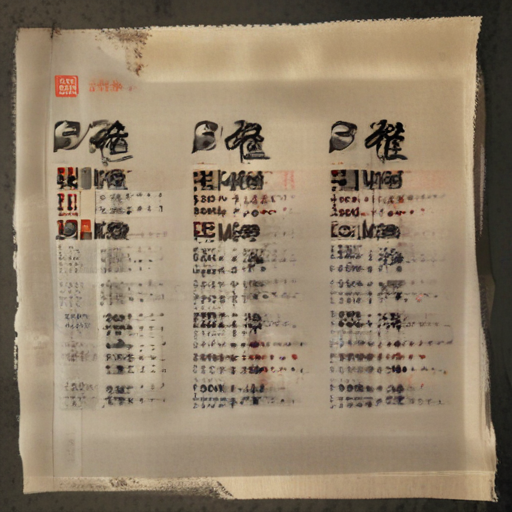
Top 10 FAQ with answer about bai guo for Buyer Sourcing from China
1. What is Bai Guo?
Answer: Bai Guo, also known as Ginkgo Biloba, is the edible seed of the ginkgo tree. It is commonly used in traditional Chinese medicine and cuisine.
2. Where is Bai Guo sourced from in China?
Answer: Bai Guo is predominantly sourced from provinces like Jiangsu, Shandong, Sichuan, and Yunnan.
3. What is the typical harvest season for Bai Guo?
Answer: The harvest season for Bai Guo typically runs from October to December.
4. What certifications are required for importing Bai Guo?
Answer: Importers usually need certifications like HACCP, ISO, and sometimes organic certifications, depending on the destination country’s regulations.
5. Are there any quality standards for Bai Guo?
Answer: Yes, quality standards include checking for moisture content, purity, absence of pests, and overall seed integrity.
6. What are the packaging options for Bai Guo?
Answer: Bai Guo can be packed in bulk (e.g., 25 kg sacks) or smaller retail packaging, often vacuum-sealed to maintain freshness.
7. How to verify a reliable Bai Guo supplier?
Answer: Verify supplier credibility through third-party audits, check for relevant certifications, and request sample shipments for quality checks.
8. What are the common uses of Bai Guo?
Answer: Bai Guo is used in various culinary dishes, traditional medicines, and as a dietary supplement due to its potential health benefits.
9. What is the shelf life of Bai Guo?
Answer: When stored properly in a cool, dry place, Bai Guo typically has a shelf life of 12-18 months.
10. Are there any import restrictions for Bai Guo?
Answer: Import restrictions vary by country. Always check with local authorities for specific import regulations, potential tariffs, and required documentation.




